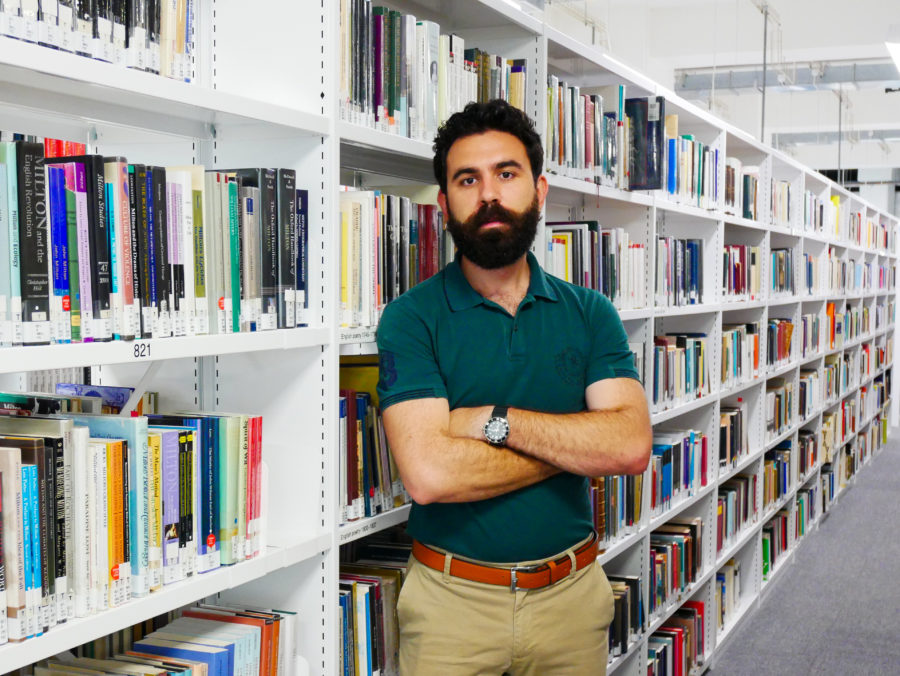4th August 2021 Skopje, North Macedonia
Environmental education is the only way out

As the days are sliding and passing by, while the most of us are sitting in our pyjamas in our homemade offices, closed in by the second pandemic in this still new millennium, we are watching on our digital skies how many parts of the world are facing the harsh and devastating reality of the climate change and everything with it. It seems that, the strong popular gallop of the environmental movement was slightly stopped in these days of the pandemic, but it doesn`t mean that the expected results of the changing world will follow with this tempo. The nature, the ecosystems and the biodiversity are changing. They are only getting worse. This is beyond any reasonable doubt. But, now in this newly formed debate of values, the question is not: Should we do something? – But, What should we do now? And maybe, just maybe the environmental education is the only way out.
Saving the world
The human kind, us as animal species, population and culture are faced with the absolutely biggest challenge in our written or oral history. We have to come up with a plan to save our world, our planet. In time when the world is divided in every direction like a piece of dry mud – we, the humans should be saving the common good. Well, I`m afraid the answer for this is already established, a long time ago too. Almost 30 years ago, in 1992, on a warm spring night in April, the ingenious American comedian George Carlin in his historical show George Carlin: Jamming In New York (1992) will explain: We don’t even know how to take care of ourselves yet! We haven’t learned how to care for one another and we’re going to save the planet?! – And this is I`m afraid very sadly true. As we are sailing in the third decade of the 21th century we are slowly realizing that we just do not have the needed toolkit to even start to think about ways that we can solve this burning issue. At the end of this past spring, the world leaders from the G7 met on the sunny and warm coast of Cornwall where beside the current epidemiological status, they discussed climate change – with UK as the leader who it looks like will pull the horses towards a more sustainable future. The meeting concluded with G7 nations agreeing to step up action on climate change and renewed a pledge to raise $100bn a year to help poor countries cut emissions. For many, these types of meetings are nothing more than high-level cocktail parties, but this was a nudge in the right direction while being aware that the environmental issues are the Goliath of problems of this generation – very complex, expensive and long. Although the motion of fixing the issues has been rolling and developing in the past few decades, it seems that we need to start over- again! Until now we have tried many options, methods and approaches, but maybe we should try with the oldest one: education. Before we start creating plans for awareness, we need to work on education. Environmental education.
Education before awareness
It’s a very common tradition to use the terms environmental education and environmental awareness like synonyms. This is not just semantics, but a completely different part of the discourse in our society. There are many, direct, simple definitions on what is environmental education. We can define it as an educational process where people are learning about the nature and the environmental issues. Very simple. But, when it comes to environmental awareness – it can be declared as understanding of the value of the environment as a whole. This can mean many different things, for many different cultures in different parts of the word. Knowing something and being aware about something are also two different sides, from different stories. To be aware of something you must learn about it. That is why, education must come before even the conversation on awareness. Education in the real meaning of the noun – a method to teach about nature, the biosphere, the animals and plants…about us. The need of the current environmental awareness, education and environmentalism are hiding in the old principals of natural history. Let`s not forget where all of this started.
Let`s start teaching
Environmental education in the past few decades changed its position and place – from an additional, sporadic, weekend activity to the last chance to make any difference. Today, environmental education is a necessity to teach young people and children about the nature, the environment, their surrounding and community as well as the issues their region is facing. As we are witnessing the destruction of the ecosystems, the non-sustainable management of natural resources, pollution and the decline of species it is more than obvious that the education is the strongest weapon in our environmental arsenal to stop this. Environmental education must have a priority position in the school programs, as well as outside the classroom in as many ways as possible. By being outside, walking, hiking, climbing and observing, the children can learn about the importance of the ecosystems, how we are all interconnected and about the values of the ecosystem services. In the age of social media many movements, organisations and initiatives are relaying on the modern, almost millennial aspect of science communication. The science communication is a precise system that forms a nexus of information channels that are contributing for a common good. The goals of science communication for environmental protection can`t be achieved only by the arts and crafts approach of social media posts. We must construct a wholesome educational system that we can build on any new issues as times go by. Forest walks, museums visits, educational strolls in farms and farmlands, open classes in botanical gardens and parks are only few of the methods that we can use. At the end it can be anything as long as it is adopted to the age, background, culture and local customs of the children.
We have a long way to go
So, how can we circumnavigate from the G7 meeting, the current pandemic and environmental education? Well, every G7 summit is organised so we can prepare ourselves for the coming days, for the future. A place where idyllically we can all come to a common standing point. The most common standing point in this decade is and will be the state of the environment and the hazards that climate change is bringing. While we are stuck at home, most of us, especially in the Western Hemisphere slowly started to understand the values of a mountain hike, a dip in a clean lake or just a stroll in the local park while breathing fresh clean air. So, if we want to have a better future, where we can all enjoy the wonders of the nature on this planet, we have to start to educate the next generation about it, while we are doing our best to fix it now as much as possible.
